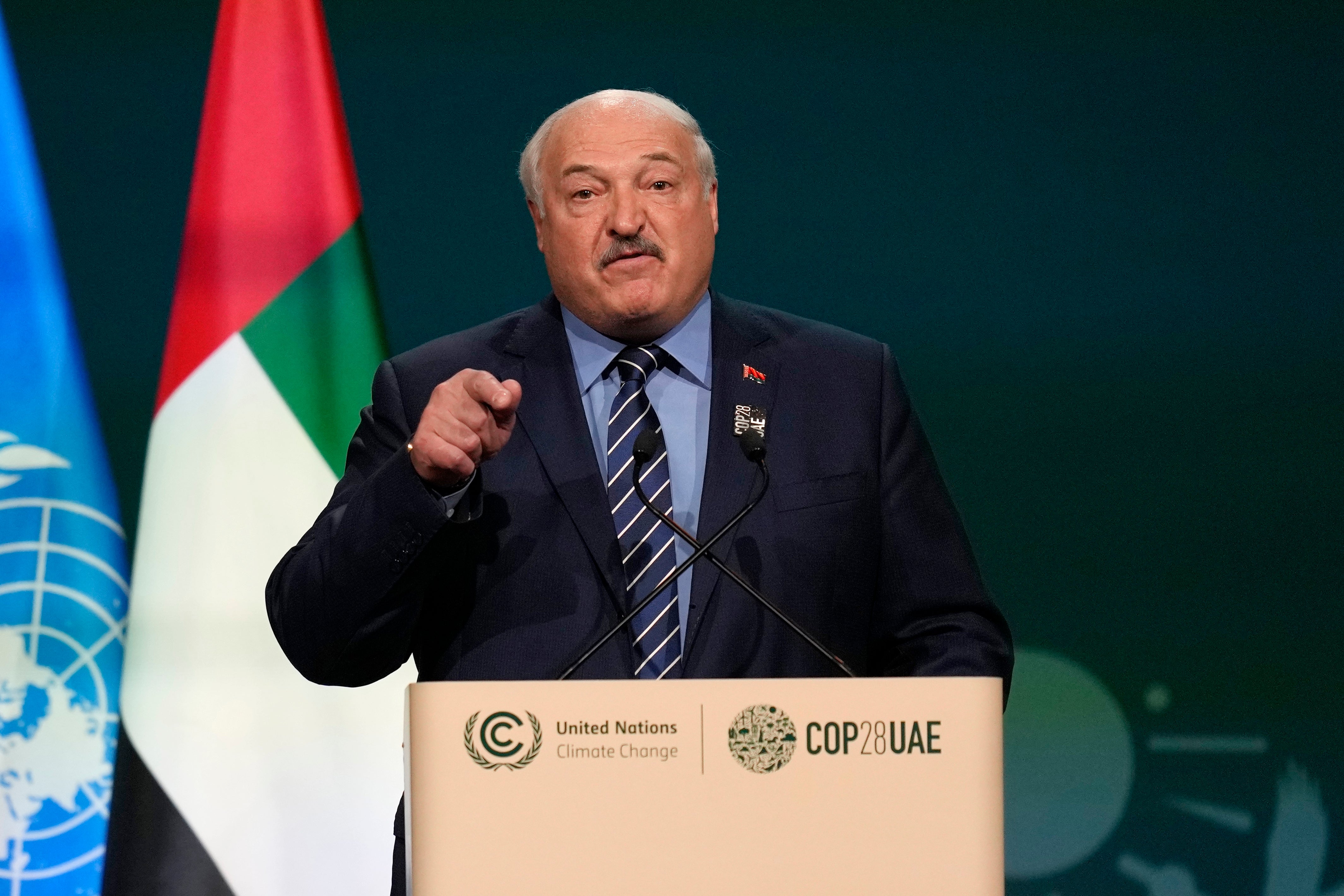2 journalists are detained in Belarus as part of a crackdown on dissent
A Belarusian journalists association has reported that two journalists have been detained in Belarus

Your support helps us to tell the story
From reproductive rights to climate change to Big Tech, The Independent is on the ground when the story is developing. Whether it's investigating the financials of Elon Musk's pro-Trump PAC or producing our latest documentary, 'The A Word', which shines a light on the American women fighting for reproductive rights, we know how important it is to parse out the facts from the messaging.
At such a critical moment in US history, we need reporters on the ground. Your donation allows us to keep sending journalists to speak to both sides of the story.
The Independent is trusted by Americans across the entire political spectrum. And unlike many other quality news outlets, we choose not to lock Americans out of our reporting and analysis with paywalls. We believe quality journalism should be available to everyone, paid for by those who can afford it.
Your support makes all the difference.Two journalists were detained in Belarus on Friday, a Belarusian journalist association reported, the latest step in a crackdown against dissent in recent years.
Chief editor of the Ranak television channel, Yulia Dauletava, and correspondent Lyudmila Andenka were detained in the city of Svetlahorsk in southeastern Belarus and accused of contributing to extremist activities, the Belarusian Association of Journalists reported. Both have covered protests in Belarus and local authorities. They each face up to seven years in prison if convicted.
A wave of protests rocked Belarus in 2020, following a disputed presidential election in August that year, in which Alexander Lukashenko was declared the winner, securing a sixth consecutive term in office.
The protests lasted for months, the largest and most prolonged show of dissent since Lukashenko came to power in 1994 and began repressing independent news media and opposition.
Lukashenko unleashed harsh measures against the protesters, with police detaining some 35,000 people and beating thousands. Many major opposition figures fled the country, including Sviatlana Tsikhanouskaya, who ran against him in the election. Others have been jailed, such as Nobel Peace Prize laureate Ales Bialiatski, founder of the human rights group Viasna. Hundreds of rights groups and independent news organizations have been shut down and labeled “extremist” by the authorities.
Independent journalists, like Dauletava and Andenka, have faced increasing pressure during the crackdown, unlike those working with state media.
Ranak, a popular regional television channel, covered the protests and investigated a gas explosion at the Svetlahorsk pulp and cardboard mill that killed three people. It was blocked in Belarus after several of its investigative pieces were released. In September, the authorities designated the channel's website and social media “extremist.”
“There is no longer a single independent news outlet in Belarus, and journalists who remained (in the country) risk arrest at any moment,” said Andrei Bastunets, leader of the Belarusian Association of Journalists. According to the group, 33 journalists are behind bars in Belarus.
“The authorities view independent media as enemies, slapping the label of extremism on everyone,” he added.
On Friday, the country's Ministry of Information added internet pages and social media accounts of the Belarusian service of Radio Free Europe / Radio Liberty to the list of “extremist materials.” It means that those who read the website, as well as pages of the outlet on X, formerly known as Twitter, Telegram, follow it on YouTube and TikTok face petty charges and an arrest of up to 15 days or criminal prosecution.
Social media pages of the Russian and Ukrainian services of RFE/RL have also been added to the list of “extremist materials” in Belarus.